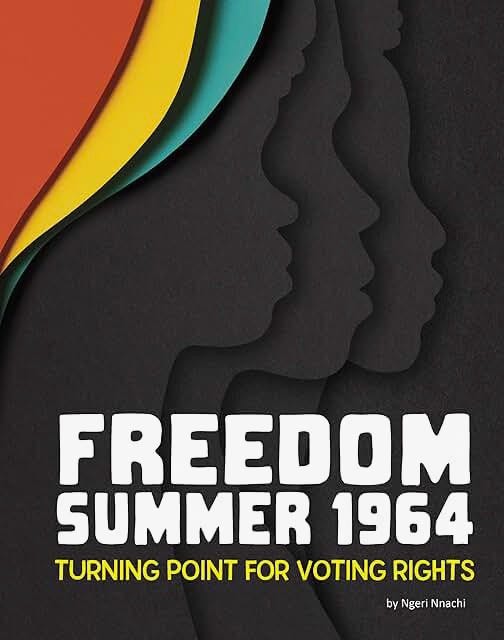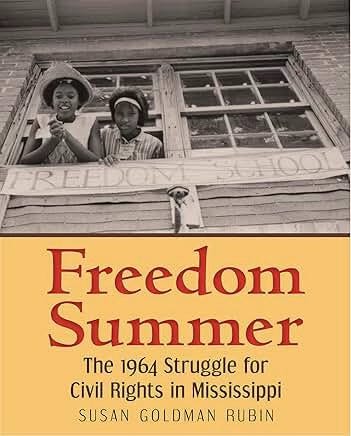A Landmark Summer
Freedom Summer 1964: Turning Point for Voting Rights & Freedom Summer: The 1964 Struggle for Civil Rights in Mississippi
The Freedom Riders, Claudette Colvin, Rosa Parks, Martin Luther King, Jr., and many others had been working for African Americans’ civil rights in the south, including the right to vote, for years. The state of Mississippi largely ignored the fact that Black Americans had the legal right to vote; it continued to create barriers to their participation. Too often, would-be voters were asked to pass difficult tests or pay poll taxes before voting. They might be arrested or fired from their jobs.
Robert Moses, an educator and civil rights activist, had a plan for the summer of 1964. Moses, focusing on Black Americans’ right to vote, thought that if voting rights activists from northern states came to Mississippi, people would listen and learn about the value of participation by all citizens. Perhaps their participation would bring media attention to the issue of voting rights. Also, northerners might come to understand more fully what racial discrimination meant for African Americans. Black and white volunteers came from all over the United States to spend the summer in Mississippi, setting up schools (Freedom Schools) and registering Blacks to vote. At the time, fewer than 7% of Mississippi’s eligible Black voters were registered.
A legacy of mistreatment of African Americans ran deep in southern states, and it affected those who were advocating for civil rights in many ways. Volunteers who taught and registered voters often faced harassment and even beatings from white residents as well as from police and local officials. Churches and buildings serving as Freedom Schools were burned. Tragically, activists Andrew Goodman, James Chaney and Michael Schwerner were killed.
Readers are introduced to key people and organizations that inspired and coordinated voting rights efforts. Archival, well-captioned photos supplement the concise text. Medgar Evers had established chapters of the National Association for the Advancement of Colored People (NAACP) in Mississippi communities. Fannie Lou Hamer steered her county’s chapter of the Student Nonviolent Coordinating Committee (SNCC), working with Robert Moses to implement Freedom Summer. Knowing African Americans were not adequately represented in the Mississippi delegation to the 1964 Democratic National Convention, activists formed the Mississippi Freedom Democratic Party (MFDP), and though they were not accepted as delegates, they brought significant national attention to representation and voting rights. The following summer President Lyndon Johnson signed the Voting Rights Act, a significant step in eliminating barriers to African American access to the polls.
Freedom Summer 1964: Turning Point for Voting Rights, by Ngeri Nnachi, provides historical context for understanding the roots of 1964’s events, as well as for thinking about the values and energy that drive today’s wide participation in protecting voting rights and a vital representative democracy.
Ages 8-12. Capstone Press, 2024.
A comprehensive narrative documentary for older readers presents the events of Freedom Summer in detail. Susan Goldman Rubin’s Freedom Summer: The 1964 Struggle for Civil Rights in Mississippi is ideal for adults, too, who wish to explore more deeply this many-layered, important time in our national history.
Ages 11 to adult. Holiday House, reprint edition, 2014.






